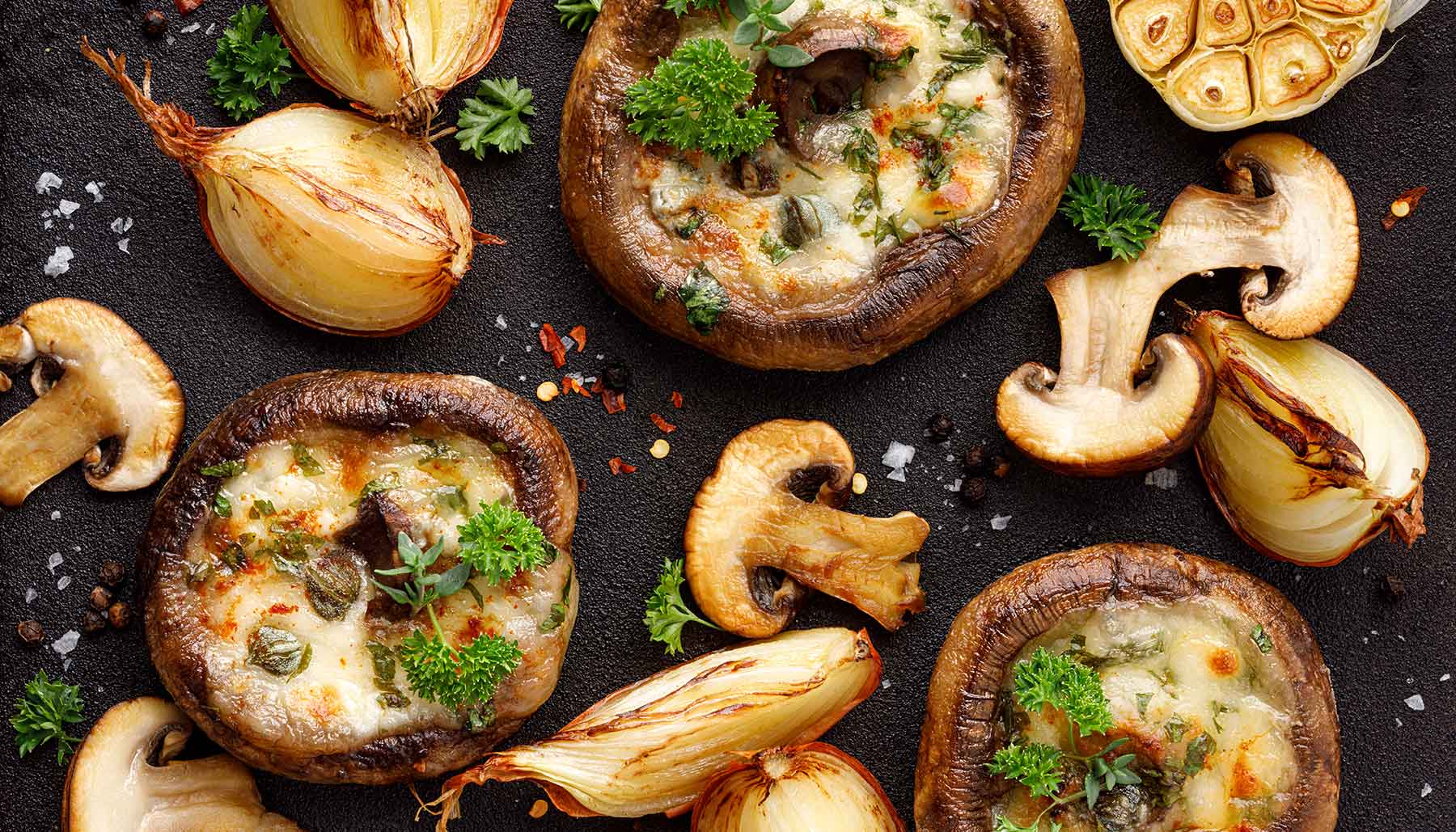Eating a healthy, well-balanced diet goes beyond our physical bodies. What we put into our bodies shapes what’s on the inside, too. By that, I mean our mental well-being. It seems like nutrition is one of the most overlooked aspects of mental health. The foods that we eat – or don’t eat – can have an affect on our brains and our moods. Hey, we are what we eat, right?
If you struggle with mood disorders like depression or anxiety, it is time to start paying better attention to what you eat. Your nutrition plays a crucial role in managing your well-being. You might be able to help your mood with what you put on your plate.
Of course, there is no specific diet to ease symptoms of depression and anxiety. However, eating more of certain foods may help boost certain feel-good chemicals in the brain. And avoiding certain other foods might help lessen their negative impact.
Changing what you eat definitely can’t cure mood disorders, but it can definitely help. Looking at the nutrients you put into your body is an excellent way to help when combined with traditional treatment methods, like medical treatment and/or counseling.
Poultry

Turkey is infamous for being loaded with tryptophan, but did you know that all poultry contains it? This essential amino acid plays a role in the production of serotonin, a mood stabilizer; and melatonin, which helps regulate your sleep patterns. Your body doesn’t produce this one, so you have to get it in your diet!
It doesn’t matter what kind of poultry you choose, you’ll still get a heavy dose of tryptophan. That includes turkey, of course, which contains 250-270 mg of tryptophan per serving. Chicken contains upwards of 310 mg of tryptophan, and even duck supplies 278 mg of the amino acid.
Fatty Fish Like Salmon
Whether you call them oily fish or fatty fish, they are still excellent sources of important omega-3 fatty acids. While omega-3s are already great for heart health and inflammation, these amino acids may also help with mental health. That’s because omega-3s are important to brain function – and a lack of them could contribute to mood disorders.
Along with salmon, this includes tuna, sardines, mackerel, and trout. And if fish really isn’t your thing, you can also find omega-3s in foods like chia seeds, flaxseeds, edamame, and walnuts.
Walnuts
Researchers have found a consistent association between people who eat walnuts and fewer depressive symptoms. This is true for most nuts in general, but walnuts seem to be at the top of the class! While most nuts are good sources of monounsaturated fats and protein, walnuts come out on top because they are the richest plant-based source of omega-3s.
Walnuts feature brain-supporting nutrients, including Alpha Lipoic Acid (ALA) and polyphenols. This means that walnuts can support better cognitive function and may lessen symptoms of mood disorders. They may also help in lowering blood pressure, which is also good for the brain and cognitive ability.
Now that you know how good walnuts are for your mind, it’s kind of funny that walnuts are shaped like tiny little brains, isn’t it?
Asparagus
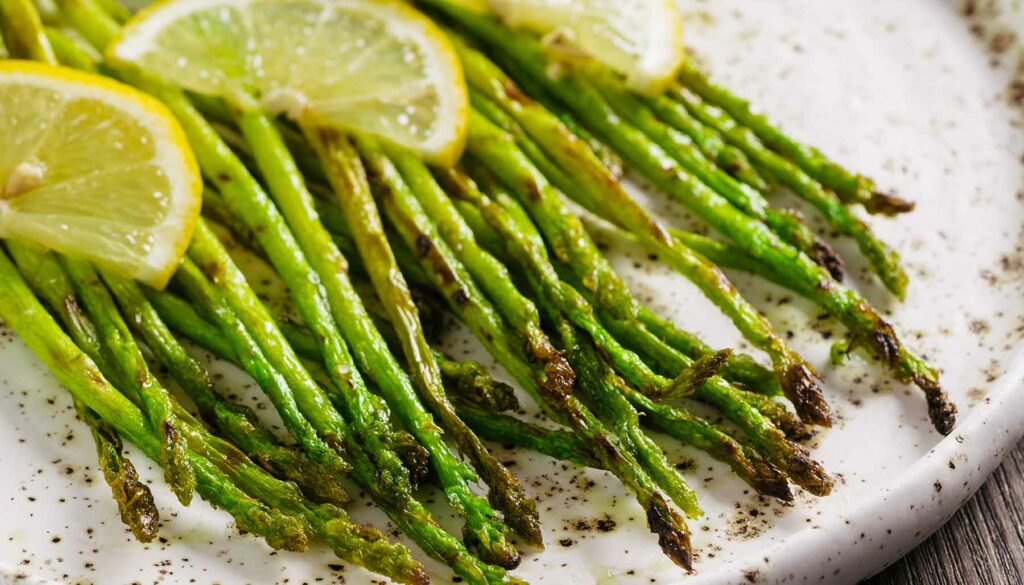
Studies have shown a link between depression and low levels of B vitamins, particularly B12 and B9 (aka folate). And while the connection isn’t fully understood, it’s worth noting that B12 has some effect on the levels of serotonin in the brain. Plus, folate (along with other B vitamins) helps convert all that tryptophan you got from eating a few chicken thighs for dinner.
Luckily, asparagus is packed with both B12 and folate! Just one cup of cooked asparagus will provide around 50 percent of your daily requirement.
Leafy Greens
Speaking of B9, aka folate, leafy greens are packed with it. Your brain needs this vitamin to function properly. Not getting enough folate may be detrimental to mood, because a lack of the vitamin is associated with depleted levels of serotonin.
Even better, many leafy greens are loaded with magnesium. This mineral helps maintain a healthy mood. A lack of magnesium can lead to mood and mental health problems, including the likes of anxiety, irritability, confusion, headaches, and sleeplessness.
Load up on kale, spinach, collard greens, turnip greens, and swiss chard. Your brain will thank you for the extra boost!
Sunflower Seeds
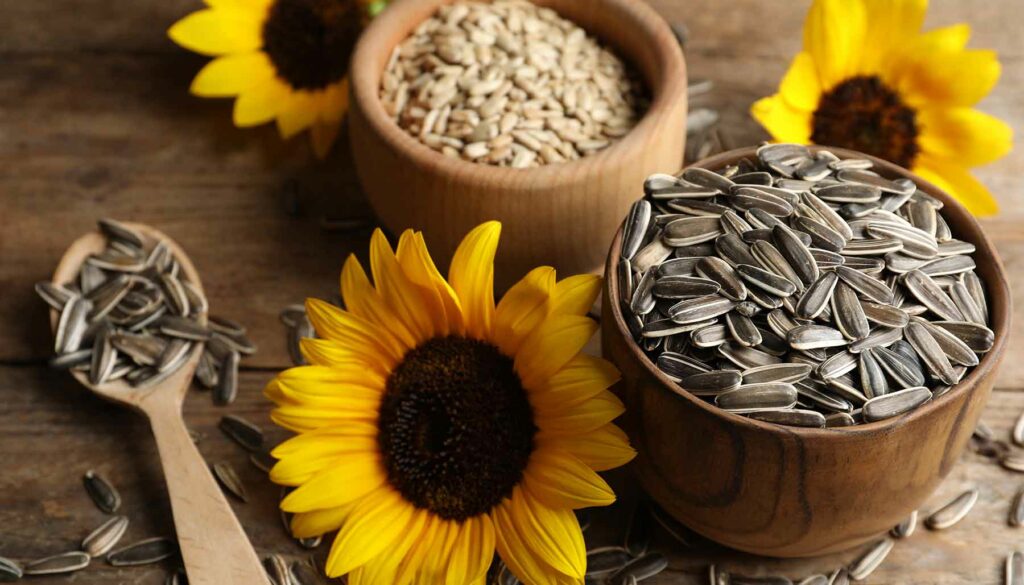
Sunflowers sure can brighten up the room in a vase, and sunflower seeds can brighten up your mood! That’s because these seeds contain magnesium and folate, just like all those leafy greens. It only takes a quarter of a cup of sunflower seeds to get 20 percent of the recommended amount of folate, and nearly 30 percent of your magnesium intake.
You don’t just have to eat sunflower seeds on their own. You can throw these little guys into a trail mix, or use them as a crunchy salad topping. You can even grind them up and use them as a coating for fish! Just be sure to eat sunflower seeds in moderation. It can be really easy to eat a ton of these little seeds in one sitting, but the calorie count is a little high!
Brazil Nuts
I know we already talked about nuts having omega-3 fatty acids, and Brazil nuts are no different there. However, they also feature the trace mineral selenium. In fact, they have the highest concentration of it. That’s why these nuts get their own section.
Several studies have shown that extra selenium in our diets can help improve mood. People who lack this trace mineral may be more likely to be depressed. You will also find selenium in proteins like beef, fish, shellfish, poultry, and eggs, if you’re not a fan of Brazil nuts.
Clams and Mussels
Both of these bivalve molluscs are great for your health in general, but they can also do wonders for your mood. That’s mostly thanks to them being high in vitamin B12, and rich in omega-3s.
I know we’ve already covered the benefits of these nutrients already, but I’ll say it again: both omega-3s and B12 are important to brain function. Lacking vitamin B12 or omega-3s may contribute to mood disorders.
Portobello Mushrooms
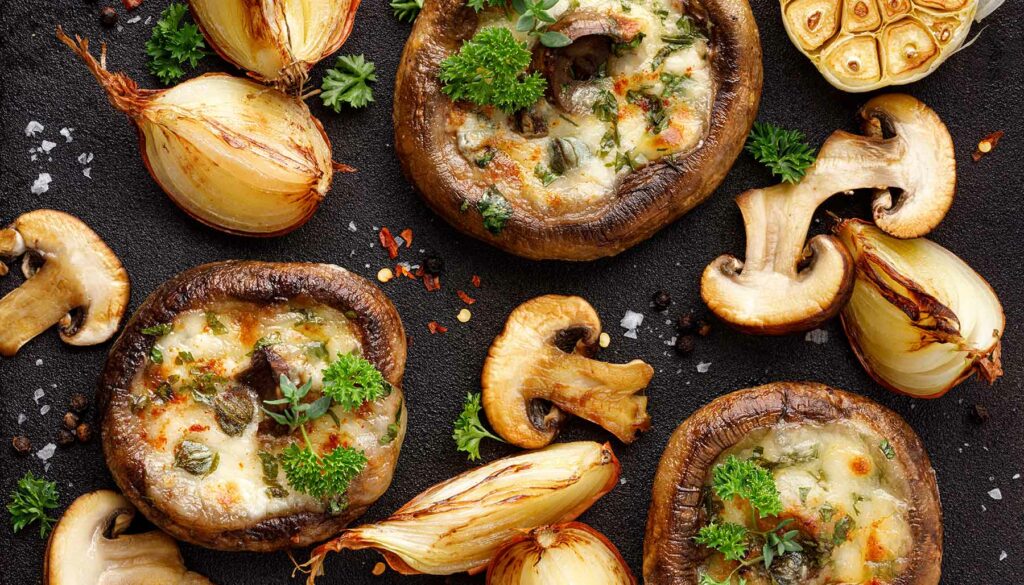
We all know that vitamin D is really important for alleviating symptoms of depression. That’s why shorter days in the winter months can cause seasonal affective disorder – aka the “winter blues.” It comes down to a lack of vitamin D.
Sunlight isn’t the only source of vitamin D. You can bump up your intake with the foods you eat. That’s because similar to humans, mushrooms naturally produce vitamin D with exposure to sunlight. Pick up some portobello mushrooms to get your boost. These big mushrooms can provide your entire recommended daily intake for vitamin D in just one half cup!
Milk
If mushrooms aren’t really your thing, you can also get more vitamin D by drinking milk. I guess the stuff really does do a body good, am I right? The trick here is drinking cow’s milk that you bought from the store. Milk on its own does not naturally contain vitamin D straight from the udder.
The milk that we buy in a grocery store has been fortified with the sunshine vitamin to promote calcium absorption and bone development. So, pick up a jug and pour yourself a glass. Just one glass of fortified milk will provide around 15 to 20 percent of your recommended daily intake.
Broccoli
Most people already know that broccoli is a heavy hitter when it comes to health. If “healthy” had a picture next to it in the dictionary, it would be broccoli. But, did you know that broccoli can boost your mood, too?
Broccoli is a member of the cruciferous family, alongside cauliflower, kale, bok choy, cabbage, Brussels sprouts, and collards. These cruciferous veggies contain high amounts of chromium. It is a trace element that increases your levels of mood-boosters like serotonin, norepinephrine, and melatonin. You will find that one cup of cooked broccoli will provide nearly your entire day’s worth of chromium.
If that’s not enough to make you reach for more broccoli, you should know that this veggie also contains vitamin B9 and selenium, too.
Two Things You Need to Remove From Your Diet
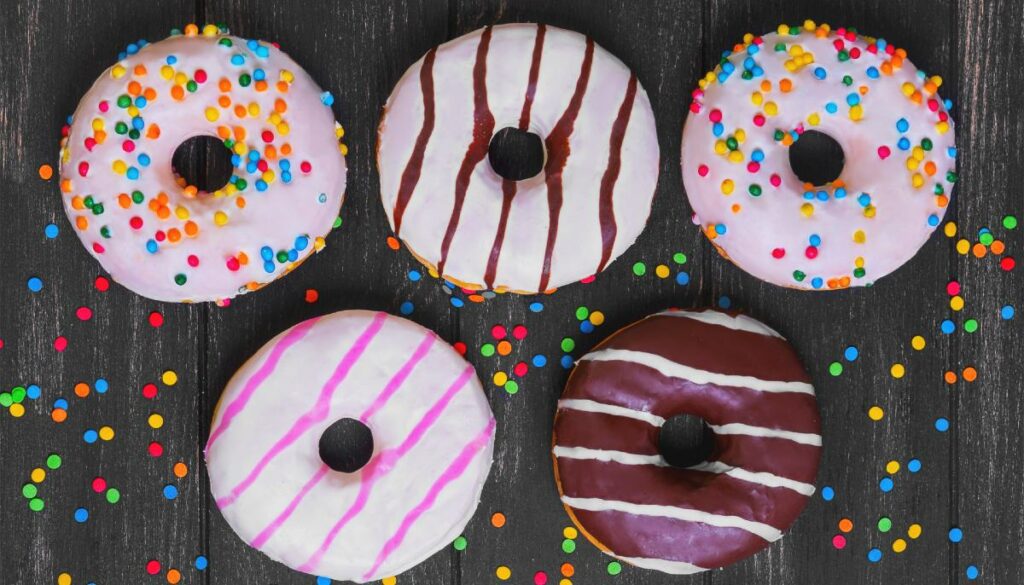
While we’re talking about what to eat to help ease depressive symptoms, we need to talk about two things you shouldn’t: alcohol, and junk food. You might think they are helping, but they could be doing more damage than good. I know that it’s easy to reach for a glass of wine to take the edge off or have a beer to relax in a social situation. While it may very well do that in the moment, drinking can eventually make depression symptoms worse over time.
Similarly, reaching for your favorite junk food (potato chips, anyone?!) can make you feel better in the moment. However, eating overly processed foods that are full of simple carbs, unhealthy fats, and lots of sugar will do terrible things to your mood over time. Your best bet is to reduce the amount of processed foods in your diet.


